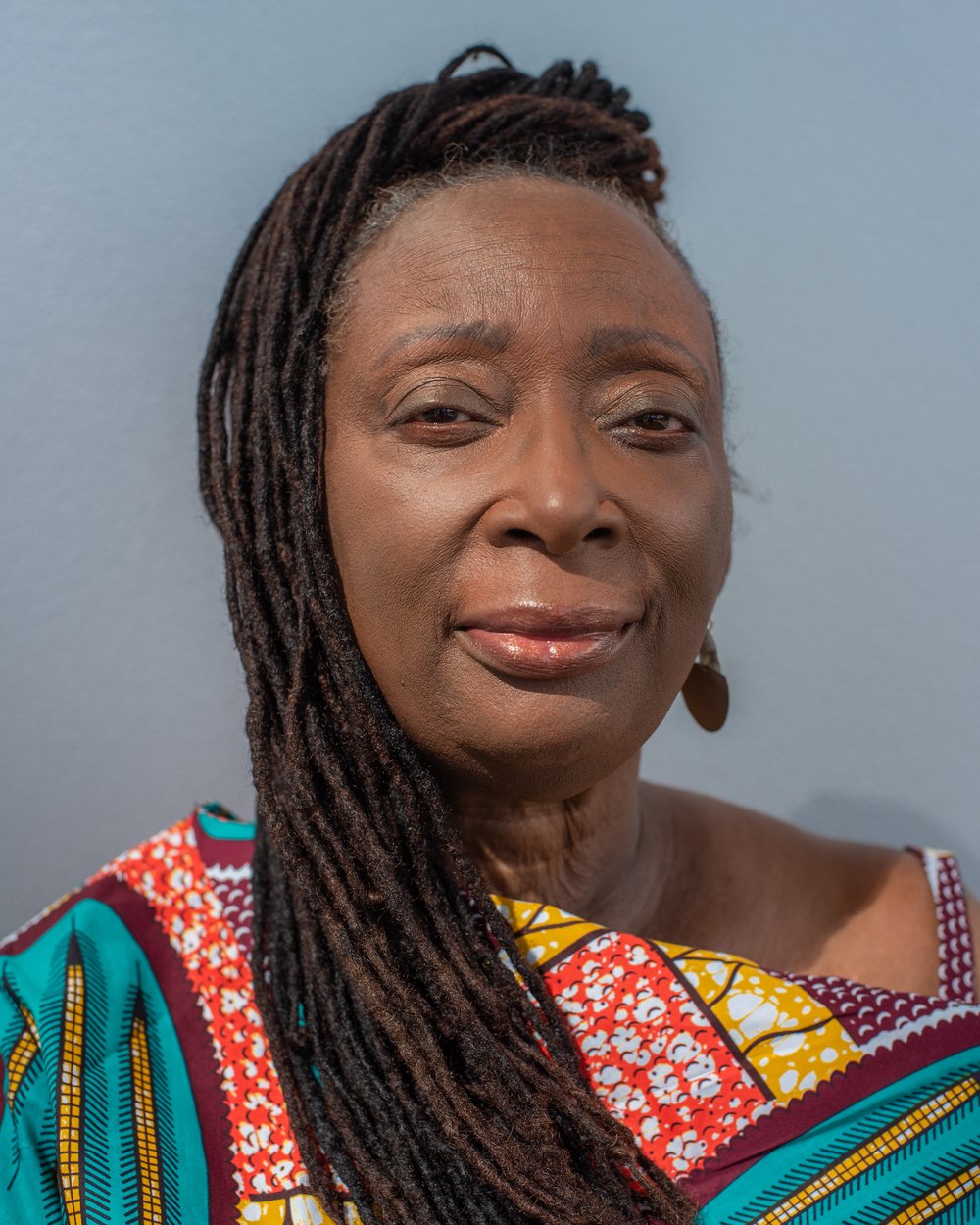Sandra Jackson-Opoku
Historical novelist
2026

- Literature
- Chicago
- New Orleans
“Days of DuSable may disrupt prevailing narratives about Jean Baptiste Point DuSable, the French-speaking Black man who founded modern Chicago. Yet as my nation prepares to commemorate its 250th anniversary, I hope to help restore DuSable’s native voice, illuminate his complex historiography, and provide intriguing avenues of speculation for one of the most enigmatic figures in Franco-American history.”
My writing investigates history, gender, identity, hybridity, and migration in the African Diaspora. It embraces a West African belief system that three worlds exist alongside each other—the living, the unborn, and the ancestral realm. As such, these works are populated by characters of diverse experiences and origins, a global community of African descendants and related groups as likely to be unborn souls and departed elders, as living people. Folkloric figures and nonhuman characters are also represented, from trickster spider, Kwaku Ananse to a colony of African house lizards.
Connections between human populations and global waterways have always fascinated me, from the Silk Road trade networks linking communities of ancient Africa, Asia, and Mediterranean Europe, ecologies of the Middle Passage, the Great Mississippi River Flood of 1927, the geopolitics of Atlantic islands, to the journeys of an 18th-century biracial fur trader along rivers and Great Lakes of the American Midwest. I’m also interested in the linguistic cultures that emerged from these encounters. This issue is at the center of my Villa Albertine Residency project.
Days of DuSable may disrupt prevailing narratives about Jean Baptiste Point DuSable, a French-speaking Black man who founded modern Chicago. Yet as my nation prepares to commemorate its 250th anniversary, I hope to help restore DuSable’s native voice, illuminate his complex legacy, and provide intriguing avenues of speculation for one of the most enigmatic figures in Franco-American history.
Sandra Jackson-Opoku is the author of three award-winning novels. The River Where Blood is Born received the American Library Association Black Caucus Award. Hot Johnny and the Women Who Loved Him was an Essence Magazine Hardcover Fiction Bestseller. Savvy Summers and the Sweet Potato Crimes won the Malice Minotaur Award for First Mystery. Her fiction, nonfiction, poetry, and dramatic works have been widely published and produced. She has received professional recognition including a National Endowment for the Arts Fellowship, the Chicago Esteemed Artist Award, the Hearst Foundation James Baldwin Fellowship, the Casa África Purorrelato Prize, and a Travis Bogard Fellowship at the Eugene O’Neill Center at Tao House.
In the 2020 “Summer of Reckoning” following George Floyd’s murder by Minneapolis police officers, demonstrators marched on downtown Chicago. Police were sent to divert them from the moneyed Magnificent Mile shopping district and Mayor Lori Lightfoot ordered the Michigan Avenue Bridge raised. The march stalled across the river from Pioneer Court, where 18th-century biracial entrepreneur, Jean Baptiste Point DuSable built a homestead and trading post that became modern Chicago.
I considered the complexities of race, class, and gender in a city settled by a Black man and at the time, led by a Black woman. Short stories emerged from these ponderings, in which a child time-travels from 18th-century Chicago into a 21st-century Black Lives Matter march. “The Secret Place” in 2021, and “Lucky Charms” in 2025 evolved into Days of DuSable, a historical novel-in-progress. Little is known of his life, so I reexamine DuSable’s legacy through the lens of a literary form coined by feminist poet/philosopher/activist, Audre Lorde. Biomythography combines elements of history, biography, and myth to create an epic narrative.
Although no one I know spoke the language, I grew up in a Chicago replete with French place names–Vincennes, LaSalle, Joliet, Marquette. Illinois was once part of Upper Louisiana when French possessions extended from the Gulf of Mexico up to the Great Lakes—a place where alliances, ethnicities, and languages were frequently in flux. DuSable likely spoke some English, smatterings of Native languages, and one or more French dialects—Muskrat French, Illinois Country/Missouri French (AKA Paw-Paw French, français vincennois, and français Cahok).
In his work as a fur trader Jean Baptiste Point DuSable crisscrossed the land and navigated waterways, traveling with his adopted Potawatomi kinship network through Illinois, Indiana, and Michigan, possibly as far as Québec. Decades after his death a writer asserted that DuSable hailed from Haiti, a claim recent scholarship now puts into question. His agility with the complex languages, identities, and geopolitics of the region suggests he was not an immigrant but an indigen.
DuSable’s lingua franca would likely have been Illinois Country French, a patois incorporating indigenous, Canadian, and African linguistic influences. Once widely spoken in areas of Indiana, Illinois, and Missouri, it is now relegated to a few dozen elderly residents in isolated regions of eastern Missouri.
In an attempt to craft a literary approximation of this dialect, I will utilize archival resources at the Newberry Library and Chicago Historical Society in Chicago, and consult with scholars in the France@Illinois program in the University of Illinois Department of World Languages, and/or the French Department at the University of Southern Louisiana in Baton Rouge. I also plan field research in Kaskaskia, Illinois and Old Mines, Genevieve, and St. Louis, Missouri, seeking out local historical societies and native speakers. I will attend French heritage festivals and annual meeting of the French Center for Colonial Studies, a center for the study of French heritage in the Midwest. I also hope to interview ethnomusicologist, Douglas Stroughmatt, who has preserved elements of this dialect in folk songs.

